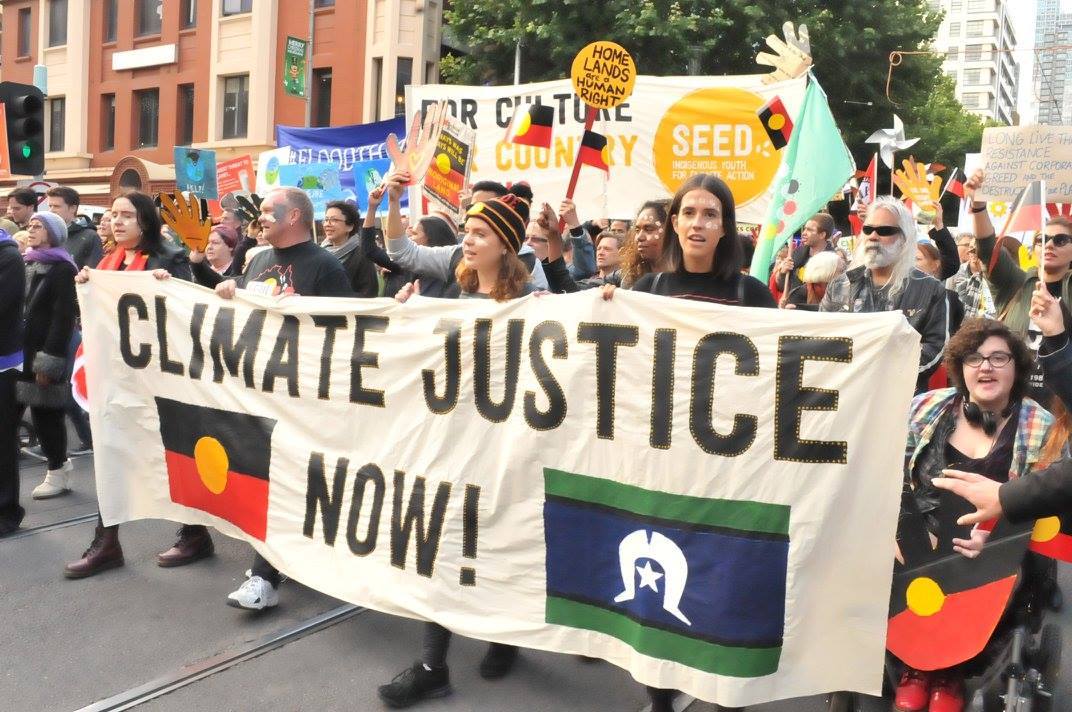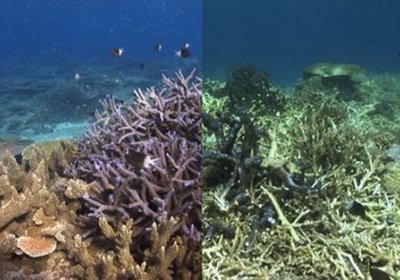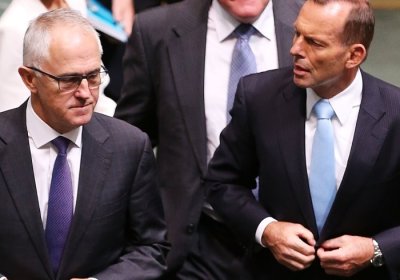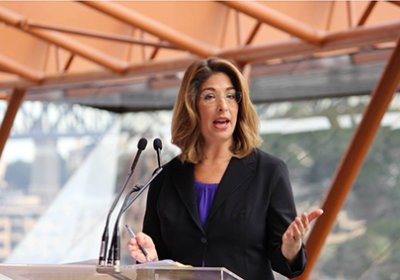“Bernie! Bernie! Bernie!” the lady from California enthusiastically chanted down the phone. Some 12,000 kilometres away on a couch in Sydney, I started to chant too.
Climate change
At the edge of the south east, the Arctic is nebulous, but its ice shards are felt on the hands, and you can feel tingles of dim isolation in the wildness of Tasmania's oceans.
Sequences and currents from Tasmania's Huon Valley rivers and Cygnet Bay dip to the deep-sea behind the pristine Bruny Island. The bio-network of inlets, bays and streams move lightly and serenely downwards with the humid vapour of the mountains. Sheltered water habitats protect rare crays, platypus, seals and southern right whales.
As we write, the much-cherished Great Barrier Reef is experiencing the devastating effects of coral bleaching. The Great Barrier Reef Marine Park Authority has declared severe coral bleaching underway (archived by Internet Archive) on the reefs north of Cooktown.
A new study by world-renowned climate scientists says the Earth entered a new epoch around 1950, following a population boom and widespread environmental change due to increased use of concrete, aluminium, plastic, burning coal and gas and nuclear fallout.
They argue that the planet has now left the Holocene epoch that existed for the past 11,700 years — the period in which human civilisation has developed and flourished — and entered a much less stable geological epoch called the Anthropocene.
The circus is over. The suits have left Paris after the November 30-December 12 UN climate talks (COP21). There have been millions of words written about the text. But one fact stands out. All the governments of the world have agreed to increase global greenhouse gas emissions every year between now and 2030.
Why? Because all the countries have agreed to accept the promises of all the other countries.
Up to 60,000 people rallied for action on climate change in Melbourne on November 27. The rally kicked off a global weekend of actions to coincide with UN climate talks in Paris.
The march was led by First Nations activists and demanded an end to fossil fuels and a planned transition to 100% renewable energy.
 Photo by Ali Bakhtiarvandi
Photo by Ali Bakhtiarvandi
 Photo by Ali Bakhtiarvandi
Photo by Ali Bakhtiarvandi
If we needed any further proof that our politicians are "fossil fools", despite recent leadership changes, look no further than the responses made by the Prime Minister and federal resources minister to the call for a moratorium on new coalmines by the President of the Pacific island nation Kiribati, Anote Tong.
In our “A World to Win” series, Resistance: Young Socialist Alliance seeks to give voice to the ideas and demands of radical young people involved in the struggle to make the world a better place.
In this week's article, Lucinda Donovan puts the case for why green capitalism cannot solve the climate crisis.
* * *
When he announced his bid to unseat Tony Abbott as Liberal Party leader Malcolm Turnbull promised a “new style of leadership”. The problem is that is about all we can hope for from the new prime minister: a change in style but not in substance.
Visiting Canadian author and activist Naomi Klein believes she owes PM Tony Abbott “a debt of thanks”.
In Sydney to promote her new book Capitalism versus the Climate: This Changes Everything , Klein said the conflict between what the planet needs and what capitalism needs is exemplified in Australia.
This week Canadian author Naomi Klein is visiting Australia to speak about why capitalism is incompatible with action on climate change. Her book This Changes Everything: Capitalism vs the Climate encourages everyone already involved in fighting for social justice and equality to see climate change as the “best chance we’ll ever get to build a better world”.
The federal government has been widely criticised for its weak carbon emission reduction target announced on August 11. The new target of reducing emissions by 26 to 28% on 2005 levels by 2030 will replace the previous target of a 5% emissions reduction on 2000 levels.
These targets are nowhere near enough to stay under a 1.5°C rise in global temperature, needed to prevent going over climate tipping points.
- Previous page
- Page 7
- Next page










